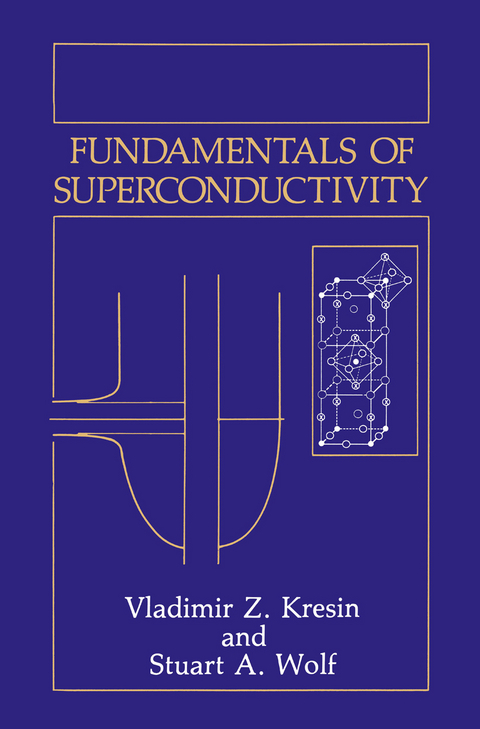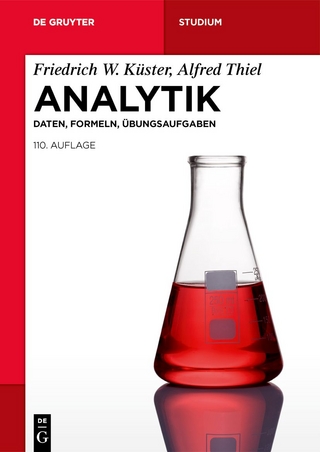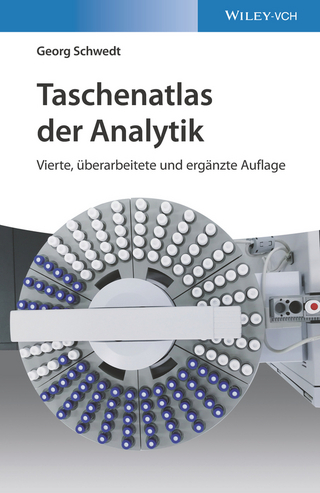
Fundamentals of Superconductivity
Seiten
2013
|
Softcover reprint of the original 1st ed. 1990
Springer-Verlag New York Inc.
978-1-4899-2509-1 (ISBN)
Springer-Verlag New York Inc.
978-1-4899-2509-1 (ISBN)
The recent discovery of high-temperature superconductivity has resulted in a remarkable growth in the amount of research and the number of researchers working in this exciting field. (The articles we have referenced were either not reflected in the review articles on monographs or were milestones in the development of the field.
The recent discovery of high-temperature superconductivity has resulted in a remarkable growth in the amount of research and the number of researchers working in this exciting field. Superconductivity is not a new phenomenon: in 1991 it will be 80 years old. Even though it was the newer discoveries which motivated us to write this book, the book itself is mainly a description of the fundamentals of the phenomenon. The book is written for a very broad audience, including students, engin eers, teachers, scientists, and others who are interested in learning about this exciting frontier of science. We have focused on the qualitative aspects, so that the reader can develop a basic understanding of the fundamental physics without getting bogged down in the details. Because of this approach, our list of refer ences is not comprehensive, and it is supplemented with a summary of additional reading consisting of monographs and selected review articles. (The articles we have referenced were either not reflected in the review articles on monographs or were milestones in the development of the field. ) In addition, some of the sections which can be skipped during the first reading have been marked with asterisks (*). Until recently, superconductivity was considered to belong to the field of low-temperature physics. This field was born, simultaneously with quantum physics, at the beginning of this century. Initially these two contemporaneous fields developed independently, but they soon became strongly coupled.
The recent discovery of high-temperature superconductivity has resulted in a remarkable growth in the amount of research and the number of researchers working in this exciting field. Superconductivity is not a new phenomenon: in 1991 it will be 80 years old. Even though it was the newer discoveries which motivated us to write this book, the book itself is mainly a description of the fundamentals of the phenomenon. The book is written for a very broad audience, including students, engin eers, teachers, scientists, and others who are interested in learning about this exciting frontier of science. We have focused on the qualitative aspects, so that the reader can develop a basic understanding of the fundamental physics without getting bogged down in the details. Because of this approach, our list of refer ences is not comprehensive, and it is supplemented with a summary of additional reading consisting of monographs and selected review articles. (The articles we have referenced were either not reflected in the review articles on monographs or were milestones in the development of the field. ) In addition, some of the sections which can be skipped during the first reading have been marked with asterisks (*). Until recently, superconductivity was considered to belong to the field of low-temperature physics. This field was born, simultaneously with quantum physics, at the beginning of this century. Initially these two contemporaneous fields developed independently, but they soon became strongly coupled.
1. A Little History. Superconducting Materials.- 2. The Nature of Superconductivity.- 3. Energy Gap.- 4. Macroscopic Quantization.- 5. Thermal and Electromagnetic Properties.- 6. The Effects of Strong Coupling. Critical Temperature.- 7. Non-Phonon Mechanisms of Superconductivity.- 8. Superconducting Films.- 9. Superconducting Systems.- 10. The Superconducting State in Nature.- 11. Measurement Techniques.- 12. Applications of Superconductivity.- 13. High-Tc Cuprates.- Appendixes.- A. Bound States in Two Dimensions.- B. The Method of Elementary Excitations (Quasiparticles).- C. Electrons in Metals. Fermiology.- D. Plasmons.- Suggested Readings.- References.
| Zusatzinfo | XI, 231 p. |
|---|---|
| Verlagsort | New York |
| Sprache | englisch |
| Maße | 155 x 235 mm |
| Themenwelt | Naturwissenschaften ► Chemie ► Analytische Chemie |
| Naturwissenschaften ► Physik / Astronomie ► Atom- / Kern- / Molekularphysik | |
| Naturwissenschaften ► Physik / Astronomie ► Festkörperphysik | |
| Naturwissenschaften ► Physik / Astronomie ► Thermodynamik | |
| Technik ► Maschinenbau | |
| ISBN-10 | 1-4899-2509-0 / 1489925090 |
| ISBN-13 | 978-1-4899-2509-1 / 9781489925091 |
| Zustand | Neuware |
| Haben Sie eine Frage zum Produkt? |
Mehr entdecken
aus dem Bereich
aus dem Bereich


